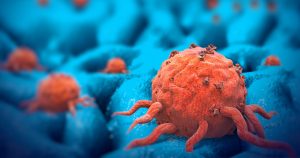OVERVIEW
Allulose is just like the new kid on the block.
Ever looked for healthy alternatives to sugar? Maybe you should give this a try.
Allulose is purported to have similar taste with refined white sugar, but contains minimal amount of calories and carbs when compared to sugar. It also claims to possess some health benefits.
Lets see with this write up the claims of allulose and how safe it is for consumption.
WHAT IS ALLULOSE
Allulose is a monosaccharide as glucose and fructose called D-psicose. It is in contrast to table sugar which has a combination of glucose and fructose.
In fact, fructose has the same chemical structure as allulose but they are arranged differently. This arrangement makes it possible for the body to metabolize allulose in a different manner from fructose.
It’s very rare and can only be found in some foods like figs, raisins, and wheat.
Nutritionally, allulose contains approximately 0.2 kcal/g, which should be about 5% of the calories of sugar. Allulose is absorbed in the small intestine without going through any type of metabolism. So, it goes out through the urine unchanged.
This phenomenon makes it possible for allulose to resist fermentation by the gut bacteria thereby avoiding bloating, and other gas related digestive problems.
There are some health benefits tied to using allulose and they include:
1. IT MIGHT BE USEFUL FOR DIABETICS: due ti its chemical structure, the body tends to metabolise allulose differently thereby leading to an insignificant raise in blood sugar.
According to a recent study, about 7.5g of allulose didn’t impact glucose levels in individuals used for the test.
2. CONTAINS LITTLE AMOUNT OF CALORIES: allulose is a very low calorie containing substance and can be used as sweetener by weight watchers. Allulose contains about 1/10th of sugars calories.
3. IT MAY PROTECT AGAINST FATTY LIVER DISEASE: since allulose is not stored in the body and converted to fat in the liver as fructose, its ability makes it possible for the liver to stay healthy.
Diabetes and insulin insensitivity has been linked to fatty liver diseases recently, with the use of allulose as substitute, the incidence of these might be reduced.
Research also suggests that allulose enhances fat oxidation.
Also, allulose could be used in baking and making of ice-cream as it has similar properties and feels like refined white sugar.
IS ALLULOSE SAFE?
The Food and Drug Administration has added allulose to the list of foods generally recognised as safe (GRAS). It is very rare in markets and not accepted in Europe yet.,
You can get it online but at a very expensive price.
SOURCES:
https://www.healthline.com/nutrition/allulose#TOC_TITLE_HDR_5
https://www.todaysdietitian.com/newarchives/0119p32.shtml#:~:text=Allulose%2C%20a%20monosaccharide%2C%20is%20present,%2C%20beets%2C%20or%20other%20sources.




 OVERVIEW
OVERVIEW